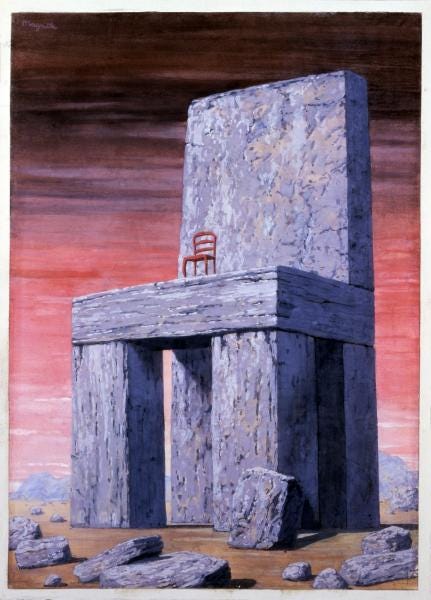History and the First Rough Draft of Journalism
When revisiting the past, we need to apply the highest standards of both crafts.
Welcome to Second Rough Draft, a newsletter about journalism in our time, how it (often its business) is evolving, and the challenges it faces.
The hyperlink is one of the great blessings of the Internet. It allows authors, among other things, to provide readers access to source material in a way that is both more accessible and less intrusive than previous tools, such as sidebars, footnotes and endnotes. But as it has become easier than ever before to “show your work,” it should also be more easily required that writers do so.
This seems especially relevant as we move through one of those periodic moments in American life when we seem to grapple most urgently with history.
The centrality of race
There can be little doubt, I think, that ours is such a moment. Like much of the narrative force of American history as a whole, this latest trend almost certainly begins with race. It has included Donald Trump’s vision of an all-white country whose peak moment seemingly was Ozzie and Harriet, and the counter-vision of the New York Times 1619 project and the responses to it, pro and con.
The increasing salience of history accelerated with the racial reckoning triggered by the murder of George Floyd, and has since broadened considerably—including news organizations’ inquiries into their own history— reaching other aspects of our lives and our past, such as journalistic inquiries into the debate about abortion in anticipation of the Supreme Court’s forthcoming Dobbs opinion.
Regular readers (or journalism nerds) may know that this newsletter takes its name from a quote from journalist Alan Barth, later made better known by Philip Graham, once the publisher of the Washington Post, that news is “the first rough draft of history.” This week I want to reflect on the obligations journalists (and others) should undertake when they seek to write a much later draft of history. (Here’s an interesting take from the Columbia Journalism Review on the same subject.)
As always, show your work
First, there is no excuse for not showing your work. This means that it’s imperative not to depict history as a land you have discovered, even if part of it may be unfamiliar to your readers. We might call this the Columbus Error, and it seemed in play in the New York Times’s fascinating recent project about the history of Haiti. Of course there is value in introducing new readers to history, but special care should be taken to note explorers who have been there before you, and especially people who have been living (or living in) the history themselves.
Claiming that citing sources undercuts the power of narrative is no more persuasive in revisiting the past than it should be in investigative reporting about today. I have long read, enjoyed and benefited from the work of Bob Woodward, but the standard sourcing rules of his original newspaper work have always seemed to me superior to those of his just-take-my-word-for-it books. Besides, especially as we near the fiftieth anniversary of Watergate, most of us would do well to remind ourselves that we aren’t Bob Woodward.
The case for modesty
Next, if you are drawing conclusions contrary to those who have come before you, be careful to specify both how you differ and why and how others may disagree. For reasons we’ll get to in a minute, we’ll call this the Hale Error. Like all good reporting, these techniques both strengthen your argument and make it more enduringly persuasive. Overly broad claims, even if mostly justified, are too easily dismissed; counter-arguments not surfaced by you will only bob up elsewhere. It’s even worse if you assemble scraps of “history” to craft a novel narrative.
A classic example arose recently with the leaked first draft of Justice Alito’s opinion in Dobbs. It leans on and cites the work of 17th Century English jurist Sir Matthew Hale. This story by ProPublica’s Ken Armstrong, a four-time winner of the Pulitzer Prize, should be a chastening reminder of how citing history with which you have not really grappled can end up being intellectually humiliating. (Let’s hope Justice Alito and any errant clerks clean up their mess before any Dobbs opinions are issued.)
Santayana’s maxim that “those who cannot remember the past are condemned to repeat it” is not the point here: the value of remembering history isn’t so much to avoid having to relive it as to better understand where we need to go in light of where we have been. If we think the past was simple and linear (it never was), we are much more likely to make the same mistake in plotting our course to the future.
There can be— and has recently been— great value in journalism crafting new drafts of history. But, as it does so, it needs to live up not only to its own highest standards, but also to acknowledge fully the history of the history on which it draws.



Much appreciate your citation of the Haiti reporting.
Thanks to Jack Shafer for pointing out to me (and Michael Socolow for having unearthed) this earlier use of the phrase "first rough draft of history"
https://twitter.com/MichaelSocolow/status/624246966478893056